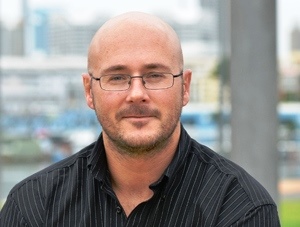
SYDNEY (Pacific Media Watch / The Guardian / Crikey / Mumbrella): The new owner and editor of investigative online magazine, New Matilda, has vowed to increase coverage of First Nations issues and indigenous affairs.
Chris Graham, former editor of Tracker magazine and the National Indigenous Times, and a well-known investigative journalist, has bought New Matilda from journalist Marni Cordell, who moved to Crikey this week as editor.
He said New Matilda had "punched well above its weight for a decade".
Graham vowed that he would continue the publication's tradition of "honesty, transparency and holding power to account".
The sale of New Matilda is an important development for investigative and independent journalism in the Pacific region, especially given that, just weeks ago, Cordell said the publication was not making enough money to survive.
It was rumoured then that New Matilda might close down completely.
Graham said that while he was not in favour of creating paywalls at New Matilda, the free stories could only be sustained if the publication got more paid subscribers and advertising. Since 2010, New Matilda has been funded by crowdsourcing but has faced closure for lack of funds twice since then.
Cordell has taken up the reins at independent media site Crikey this week.
“It sets its own editorial agenda at a time when so many others are following the pack. I admire Crikey’s curiosity, its willingness to serve it up to all-comers and its fierce independence,” she told Mumbrella.
Mumbrella added that Cordell wanted to make Crikey the primary site for whistleblowing.
Strong track record
Cordell earlier told The Guardian that she had received a number of offers to buy New Matilda but chose Graham because of his strong track record in investigative journalism.
Graham has written widely on racism and the media. He wrote a damning expose about an ABC Lateline programme entitled "Sexual slavery reported in Indigenous communities". This 2006 Lateline programme alleged that Aboriginal children were being bought and sold as sex slaves.
However, Graham found that the story "was a ruse almost from start to finish".
He found that Lateline had "never once actually set foot" in Mutitjulu (the small town where the sex trafficking was said to be taking place in the community). He also found that the chief witness - claimed to be a youth worker who had lived in Mutitjulu - who was filmed with his face shadowed and voice digitised, had never been a youth worker, never lived in the town and was instead a senior government official, Gregory Andrews.
Andrews' claims to have reported sex trafficking to the police were discredited when it was revealed that not a single police complaint was ever laid and that he had also told government that children were being sexually abused, not sold as slaves.
This work is licensed under a Creative Commons Attribution-NonCommercial 3.0 New Zealand Licence.




